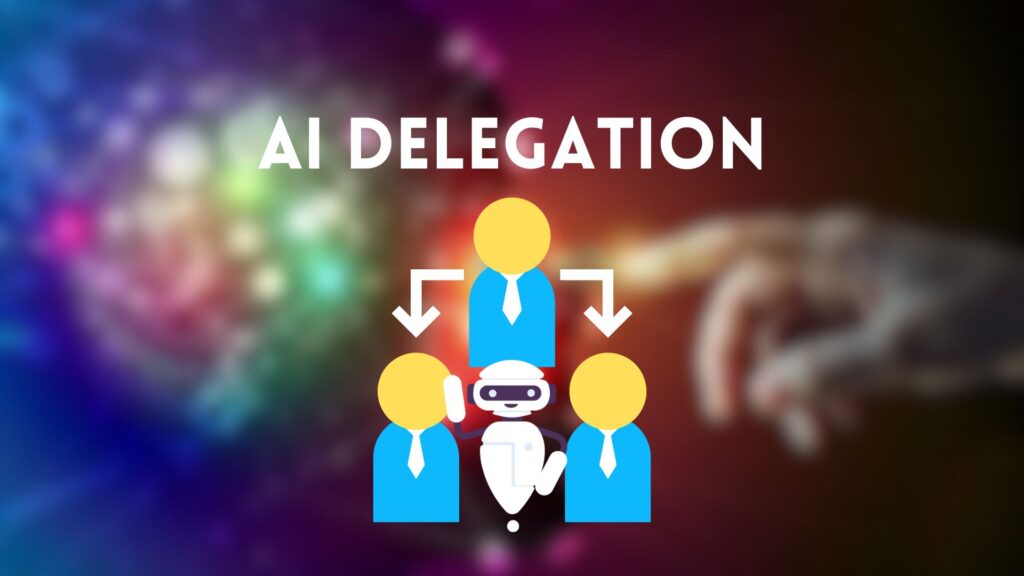
Artificial intelligence (AI) is not here to replace humans; rather, individuals who embrace AI will replace those who do not. This forward-thinking perspective is shared by executives at leading companies like IBM, where CEO Arvind Krishna has announced a selective pause in hiring for back-office jobs that can be automated by AI. AI delegation can significantly enhance efficiency by handling routine tasks such as data entry, processing and analysis, error detection, document review, and scheduling. The rise of deep learning and generative AI tools, such as the widely acclaimed ChatGPT, has made it evident that AI is now a powerful, accessible, and indispensable technology.
The Race to Adopt AI
Businesses, from small startups to multinational enterprises, which may have been observing AI from a distance, are now scrambling to adopt this transformative technology. However, it’s not just corporations that are concerned about falling behind; individuals themselves are realizing that understanding and working with AI is becoming a critical skill in numerous industries and professions.
Mastering AI Delegation
One aspect that is rapidly becoming clear is that success lies in mastering the concept of AI delegation. In simple terms, this means identifying tasks that are better suited for humans and those that are best left to machines.
AI in the Workplace
AI is rapidly transitioning from being a cutting-edge IT application reserved for high-tech startups and large enterprises to becoming an everyday tool that anyone can utilize. It has applications across various domains:
- Sales and Marketing: AI is used to identify business opportunities, segment customers, create content, and tailor personalized promotional materials.
- Finance: AI automates complex data tasks like fraud detection, market trend prediction, and risk management.
- Legal Professions: It quickly summarizes extensive case law, drafts contracts and documents, and assists in legal research.
- Healthcare: AI analyzes medical images and aids in accurate diagnoses, benefiting doctors and hospitals.
- Design and Engineering: AI facilitates generative design for prototyping products and structures, as well as predictive maintenance for efficient repairs and maintenance.
The Proficiency Advantage
As AI becomes more powerful and accessible, its usage in the workplace will become more widespread. Proficiency in leveraging AI to drive efficiency and create value will be a significant driver of success in careers. Just as those who excelled in using mechanical tools thrived after the industrial revolution and those who embraced computers and the internet led the information age, those who master AI delegation will thrive in the future.
Understanding AI Delegation
Unlike previous workplace revolutions, AI is not replacing manual labor but rather managerial tasks. IBM’s chief commercial officer, Rob Thomas, asserts that managers who utilize AI will replace those who do not. AI delegation requires managers to understand the skills and abilities of their robotic workforce. To start, comprehending AI’s capabilities, available tools, and how they relate to specific business functions is essential.
AI Delegation for All
AI delegation is not limited to traditional managerial functions. Every employee, regardless of role or seniority, has a workload to manage. AI delegation can significantly enhance efficiency by handling routine tasks such as data entry, processing and analysis, error detection, document review, and scheduling. Delegation not only allows work to be assigned to the most suitable entity, in this case, AI, but also provides saved time to focus on tasks that require human skills, original thought, high-level strategy, decision-making, and interpersonal communications.
Skills Required for AI Delegation
Developing a comprehensive understanding of AI’s capabilities and limitations is crucial when determining what tasks can be delegated. While AI can write impressively, it still lacks original thought, necessitating human input for communicating ideas, opinions, and strategies. Additionally, it is essential to learn how AI impacts one’s specific role and responsibilities within an organization, as AI is implemented across back-office functions, customer-facing operations, and more.
Familiarity with AI tools and dedicated learning can significantly improve one’s ability to effectively collaborate and delegate to AI. Lastly, understanding the legal, regulatory, and ethical implications of AI usage in the workplace is critical to ensure privacy, mitigate bias, and maintain ethical practices when feeding data into AI systems.
The Future of AI Delegation in the Workplace
The nature of work and the workplace is evolving rapidly. As with previous technological revolutions, the next generation of leaders will emerge from those who can adapt. Mastering AI delegation is a crucial step toward ensuring one’s place among these leaders. This entails understanding AI’s capabilities, making informed decisions about delegation, and managing it efficiently and ethically. Remember, AI is a tool, perhaps the most powerful and useful one of our time. By mastering AI and using it effectively, we can enjoy careers that are more productive, interesting, and rewarding.






